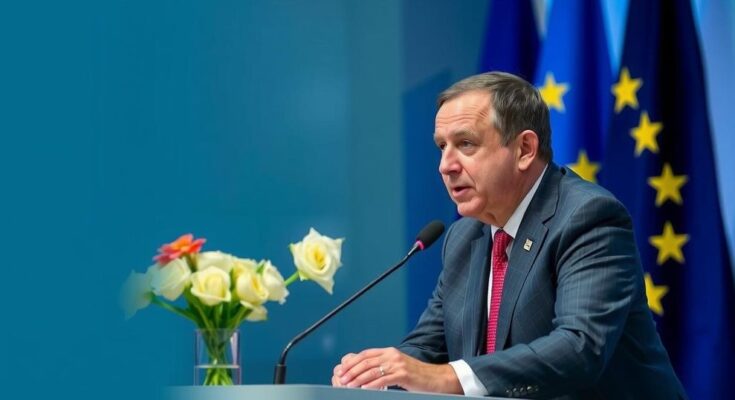Czech Prime Minister Petr Fiala emphasizes the need for the EU to rethink its climate goals in light of potential U.S. withdrawal from the Paris agreement. He urges collaboration with major global players, advocates for realistic climate targets, and supports nuclear energy as part of decarbonization efforts. Fiala calls for a review of past commitments before establishing new objectives.
The Czech Prime Minister, Petr Fiala, has urged the European Union to reconsider its climate objectives if global allies remain absent, particularly in light of the tendency of the newly re-elected U.S. President, Donald Trump, to withdraw from the Paris climate agreement. Fiala indicated that Europe cannot achieve its climate goals independently and emphasized the importance of seeking collaboration with major players like the United States and China. He acknowledged the sovereignty of the U.S. in making such decisions, yet highlighted the potential repercussions for international climate efforts. While recognizing that some U.S. states may continue to uphold climate commitments irrespective of federal direction, Fiala argued against the assumption that Europe can singularly finance and implement climate strategies. He advocated for a thorough reassessment of existing policies, stressing the need to evaluate the efficacy of previous climate targets before establishing new ones. In his COP29 address, Fiala underscored the necessity of setting realistic and achievable climate goals, reflecting on the frequent failures of global commitments. Moreover, the Prime Minister endorsed the role of nuclear energy in the decarbonization process, expressing willingness to assist nations contemplating nuclear energy initiatives, particularly those lacking prior experience. Fiala’s remarks at the UN climate conference in Baku pointed out the balance necessary between ambition and practicality in the climate discourse.
The European Union has been actively engaged in international climate diplomacy, aiming to address global warming through comprehensive policies and cooperative agreements. The shift in U.S. leadership, particularly under President Trump’s administration, casts uncertainty on transatlantic climate initiatives. This uncertainty is compounded by the recent inclination of developing nations to pursue individual pathways to energy independence and economic growth, sometimes in contradiction to international pledges for climate action. The call from Czech Prime Minister Fiala highlights the critical juncture facing EU climate policy, calling for introspection and reevaluation of existing goals.
In summary, the Czech Prime Minister’s call for the European Union to reassess its climate ambitions, particularly in the absence of strong global partners, underscores the challenges posed by the shifting political landscape. Fiala’s insistence on realistic targets and the evaluation of past commitments reflects a pragmatic approach to climate policy. His advocacy for nuclear energy exemplifies the diverse strategies Europe may consider to meet its decarbonization goals while encouraging collaboration amongst both developed and developing nations.
Original Source: www.euractiv.com




